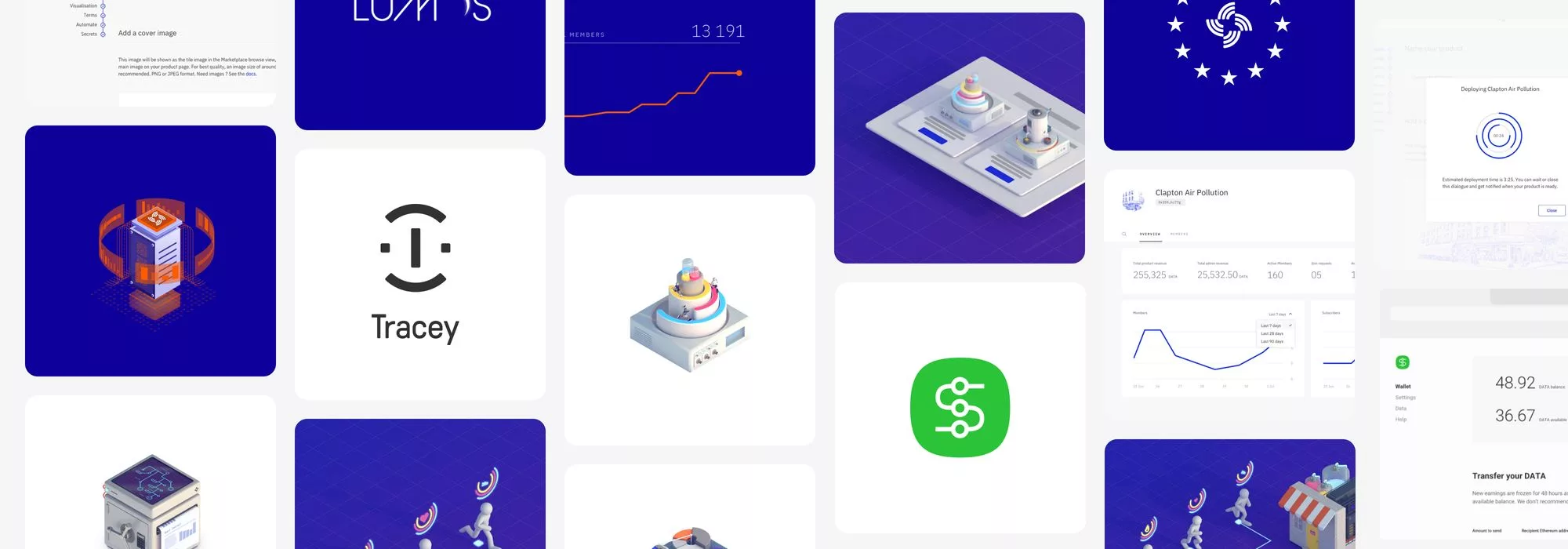There are several interesting Streamr Improvement Proposals (SIPs) lined up for the Q2 round of Streamr governance voting. In this blog post, I’ll introduce one of them in detail:
Table of Contents
- SIP-3: Launch a DAO and UNION token for the Data Union framework
- Proposal for launching the Data Union DAO and UNION token
- Why launch a new DAO and token?
- How would UNION tokens be distributed?
- Bootstrapping the Data Union DAO
- The case AGAINST the proposal
- The case FOR the proposal
- When will the voting take place?
SIP-3: Launch a DAO and UNION token for the Data Union framework
This is an idea we’ve been bouncing around within the Streamr team since last year, and it’s now time to put it up for a Streamr governance vote. But before diving into the proposal, let’s briefly cover what Data Unions are and why they are important.
Data Unions are a way for applications and devices to manage consent, collect data, and reward users with micropayments for any valuable data they jointly provide. Data Unions are built on a technical framework leveraging Streamr and Ethereum technologies, enabling data crowdsourcing and crowdselling at scale. The framework has been in active development since 2019 as part of the Streamr project. A new 2.0 version of the framework was recently released, with many further developments in the roadmap and more than 20,000+ users on the platform so far.
While data economies and markets are nascent at the moment, they are projected to generate $13 trillion in new global economic activity by 2030, according to McKinsey. Ethical and fair methods for data collection and monetization are required to enable these data economies to take off. In addition, data cooperatives and data self-sovereignty have been identified by the European Commission as key approaches. By decentralizing all layers of the solution, the combination of the Streamr Network, Ethereum, and the Data Union framework are the perfect combination of technologies for application builders to tap into the value generated by these emerging markets.
Proposal for launching the Data Union DAO and UNION token
The mission of the Data Union DAO would be to govern and further develop the Data Union framework. The Data Union DAO would have its own token, UNION. This is what it would be used for:
- Vote on governance proposals (DUIPs, i.e. Data Union Improvement Proposals)
- Incentivise teams to grow existing Data Unions and build new ones
- Incentivise investors to fund projects on the upcoming Data Union Springboard platform
- Incentivise the provision of liquidity on DEXes
- Other improvements as decided by the DAO.
Why launch a new DAO and token?
Behind every DAO is a group of token holders that is incentivized to achieve a shared mission. The DAO is a decentralized decision making system that helps token holders coordinate their efforts and reach consensus through governance proposals. Achieving this mission can be thought of as the objective function of the DAO.
The core purpose of the Streamr DATA token is to power the token economics of the Streamr Network. Therefore, the main objective of Streamr governance is optimising the health and adoption of the Streamr Network. Data monetisation and Data Unions are key use cases for the Streamr Network – there is plenty of overlap in the best interests of each product.
On the other hand, Data Unions are also a movement and a mission in their own right. By launching a separate DAO to govern the Data Union framework, a clean separation of concerns can be achieved. The Data Union DAO should govern with the intent to maximise the growth of the Data Union ecosystem.
The alternative is to maintain the status quo and keep developing and governing the Data Union framework within the Streamr DAO. This has worked well so far, but the approach doesn’t really allow for a Data Unions-specific token economy to be created.
Via this SIP, DATA holders get to decide via voting whether they see added value in separating the projects.
How would UNION tokens be distributed?
The UNION token should accomplish two main goals:
- Enable the Data Union framework to grow and thrive under the governance of the new DAO, and
- Connect UNION to the DATA token to provide DATA holders with an incentive to support the ecosystem and reward them for the work done on Data Unions so far.
We think that the UNION launch should be a fair one, meaning that no tokens go to a founding team or early investors. Instead, the Data Union framework should be completely community-owned and controlled. Therefore, the DAO should create a model where UNION tokens can be “farmed” by Data Union builders over time (based on the number of members or amount of revenue, for example). The DAO can also pay out tokens for code contributions to improve the framework itself.
So far, the Data Union framework has been developed under the Streamr project funding and DATA-based governance. In order for the community of DATA holders to approve and support the friendly fork, a share of the UNION supply must be distributed to DATA holders over time.
The share that goes to DATA holders vs. the new DAO should be chosen carefully, as there’s a trade-off. The DAO should have enough to further develop the project and reward future actors in the UNION ecosystem, while the DATA community should receive enough to accept and support the change.
This SIP allows DATA token holders to vote on the most appropriate split of the UNION supply:
- Approve 50/50: 50% to the Data Union DAO, 50% to DATA holders
- Approve 60/40: 60% to the Data Union DAO, 40% to DATA holders
- Approve 70/30: 70% to the Data Union DAO, 30% to DATA holders
- Reject: Reject the proposal and keep Data Unions governance under the Streamr DAO powered by DATA token
If the ‘Approve’ options combined get the majority of the votes, the ‘Approve’ option with the most votes becomes the decision. If the ‘Reject’ option gets the majority of the votes, the SIP is rejected.
In a nutshell, if the SIP passes, DATA holders will receive a share of the UNION supply for free as long as they hold on to their DATA. The tokens will be distributed via periodical airdrops to DATA holders over a period of 24 months. The amount airdropped to each address is proportional to the amount of DATA held in that address at the beginning of each airdrop period.
The DAO independently decides how to use its share of the UNION supply to advance Data Unions, with some ideas already outlined earlier in this proposal.
The UNION token will be an ERC-20 token usable across bridges on Ethereum mainnet and its various sidechains, such as xDai, Polygon, and Binance Smart Chain. UNION airdrops will take place on a sidechain due to the high gas costs on mainnet.
Bootstrapping the Data Union DAO
The intention is that the new DAO starts off with the current Data Union framework and adopts its current roadmap as the starting point. Starting off with the current setup also means that Data Unions continue to use the Streamr Network to collect data and continue to use the DATA token to pay members. The setup can be expanded in the future if the UNION holders (many of which are also DATA holders) consider that to add value to the ecosystem, and vote for such proposals in the DAO.
The DAO will have funds to operate with; it will be in control of the share of UNION tokens allocated to it, as well as a $1 million nest egg provided by the Streamr project to ensure uninterrupted development of the framework. It can choose to sell some of its supply to fund long-term operations, or reward for work done in UNION tokens.
In the very beginning, no one will have UNION tokens for voting. The genesis event will be the first airdrop to DATA holders, enabling the Data Union DAO to bootstrap its governance process and get itself organized. Streamr team members, the teams currently building Data Unions, and Data Union advisors will steward the young DAO and help with the practical aspects of getting the new DAO up and running.
The case AGAINST the proposal
There are always pros and cons to everything. The key downsides of SIP-3 are:
- It takes some time and effort to make the change, and that time is away from developing the products under the already established model
- While the goals of both the Streamr DAO and Data Union DAO are aligned by creating overlap in the token holder base, the DAOs and their tokens could end up competing for attention or have conflicting interests in the long run.
The case FOR the proposal
The key benefits of SIP-3 are, as explained earlier in this blog post:
- Focus: the DATA token and UNION token have different purposes, and the associated DAOs can optimise for their respective goals
- Empowerment: The Data Union framework becomes a self-sustaining, healthy project.
The key question to answer is this: Does the new DAO and token add value and focus to the ecosystem compared to the current “one token to rule them all” model?
Is DATA + UNION > DATA?
When will the voting take place?
The SIP-3 proposal will be voted on in the Streamr Q2 governance round, which will run from 17th to the 24th of May. The other proposals for that round will be introduced next week, so stay tuned! There will also be an AMA before the voting opens. In the meantime, if you have any questions or comments about SIP-3, feel free to drop them in the #governance channel of the Streamr Discord server, where you can talk directly with members of the team.
Learn more about Data Unions
- Discover Data Unions
- Documentation: Intro to Data Unions
- Data Union DAO










